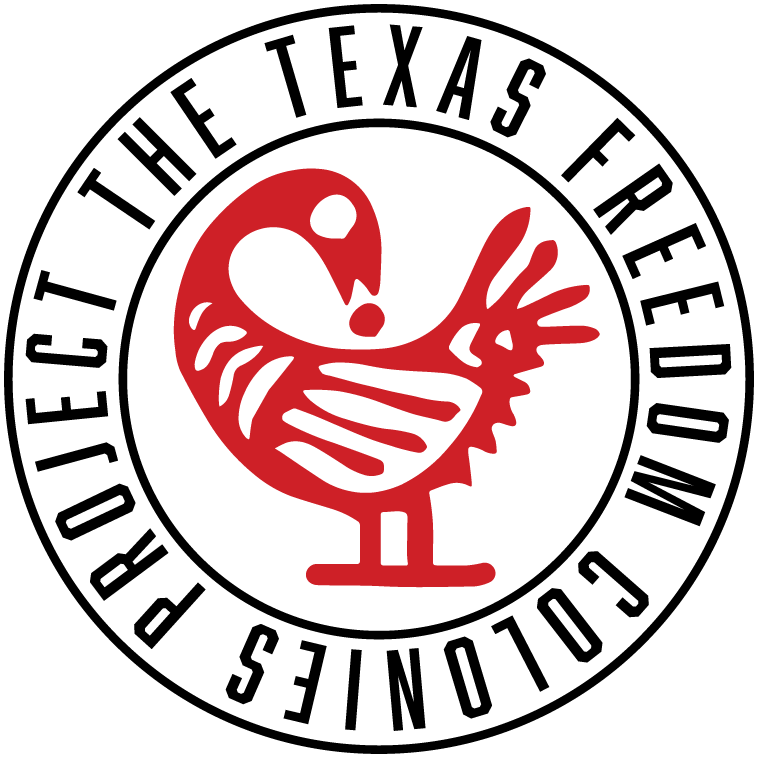What is the Texas Freedom Colonies Project?
The Texas Freedom Colonies Project puts freedom colonies on the map, on policy agendas, and at the center of Texas history. Our goal is to prevent the erasure, destruction, and decay of cultural properties within settlements in partnership with descendant communities. Cultural properties include home/farmsteads, churches, and schools. The Texas Freedom Colonies Project is an educational, social justice initiative dedicated to preserving the heritage of Texas’ historic African American settlements, and the planners and preservationists that made them possible. We are researchers who map disappearing places and co-create resilience strategies with endangered communities. To support freedom colonies’ community resilience, the Project engages in three core activities
- Recording and safeguarding stories and materials associated with freedom colonies’ origins & decline
- Hosting and maintaining an interactive, publicly accessible Atlas & Database of freedom colony locations including GIS layers indicating development and ecological threats
- Identifying resources for and co-developing community resilience strategies and policies with freedom colony descendants using the contents of the Atlas and Database
The Project uses GIS analysis, archival research, and engaged ethnography, including oral histories. Team members create peer-reviewed scholarship, develop project-based learning for students, and provide evidenced-based support to grassroots and public preservation groups and agencies, which along with the Atlas, make freedom colonies more visible to those who can influence their chances of survival.
The Texas Freedom Colonies Project Atlas & Study
The Texas Freedom Colonies Project Atlas & Study is an ArcGIS, StoryMap-based platform containing a map of historic Black settlements. Visitors and users can share data, co-research with scholars, and store freedom colony historical and contemporary materials, recordings, photos, and interviews about challenges and promising preservation practices. The Atlas is the prototype for a future portal with full-time staff support, the capacity to hold larger amounts of data than at present and serve varied stakeholders who want to protect freedom colonies, including advocates, planners, and cultural resource managers. The Atlas’ layers also illuminate the impact of natural disasters on freedom colonies.
